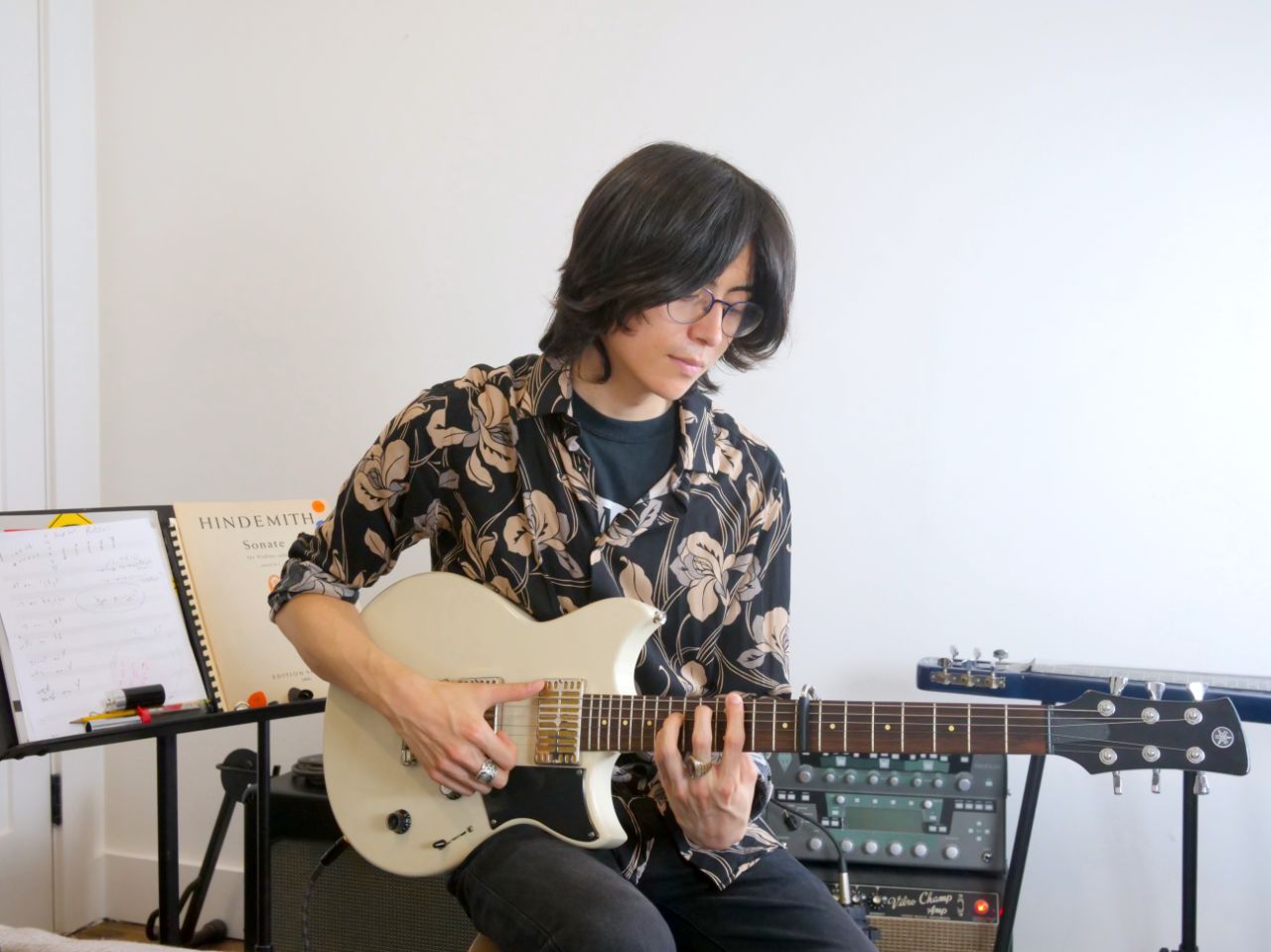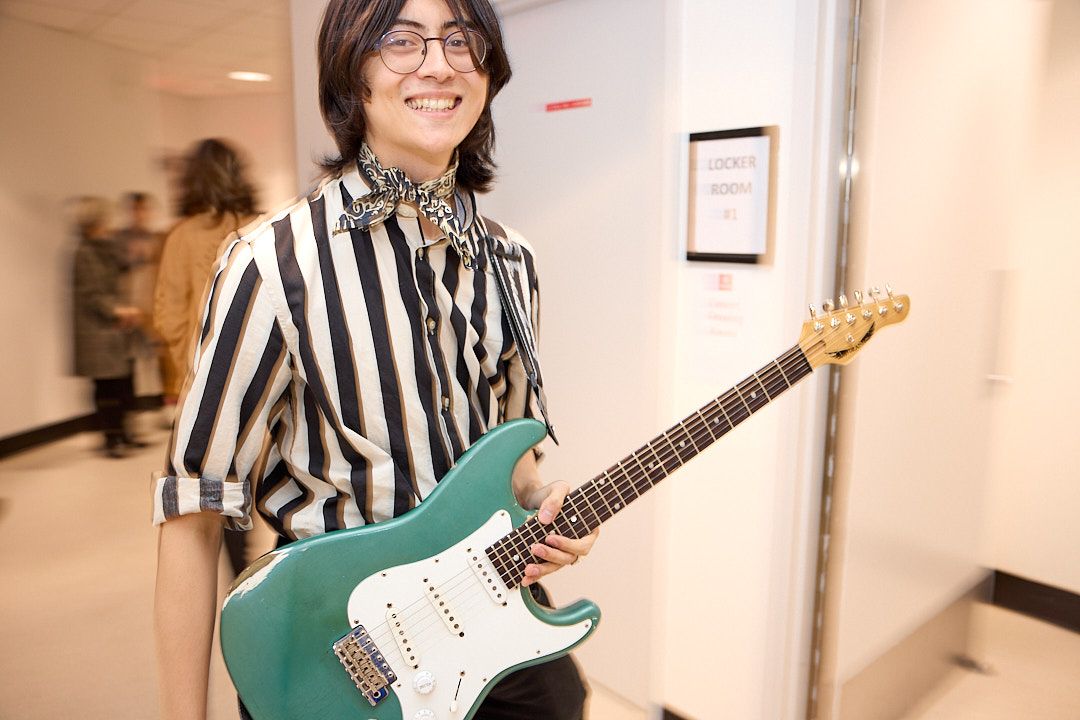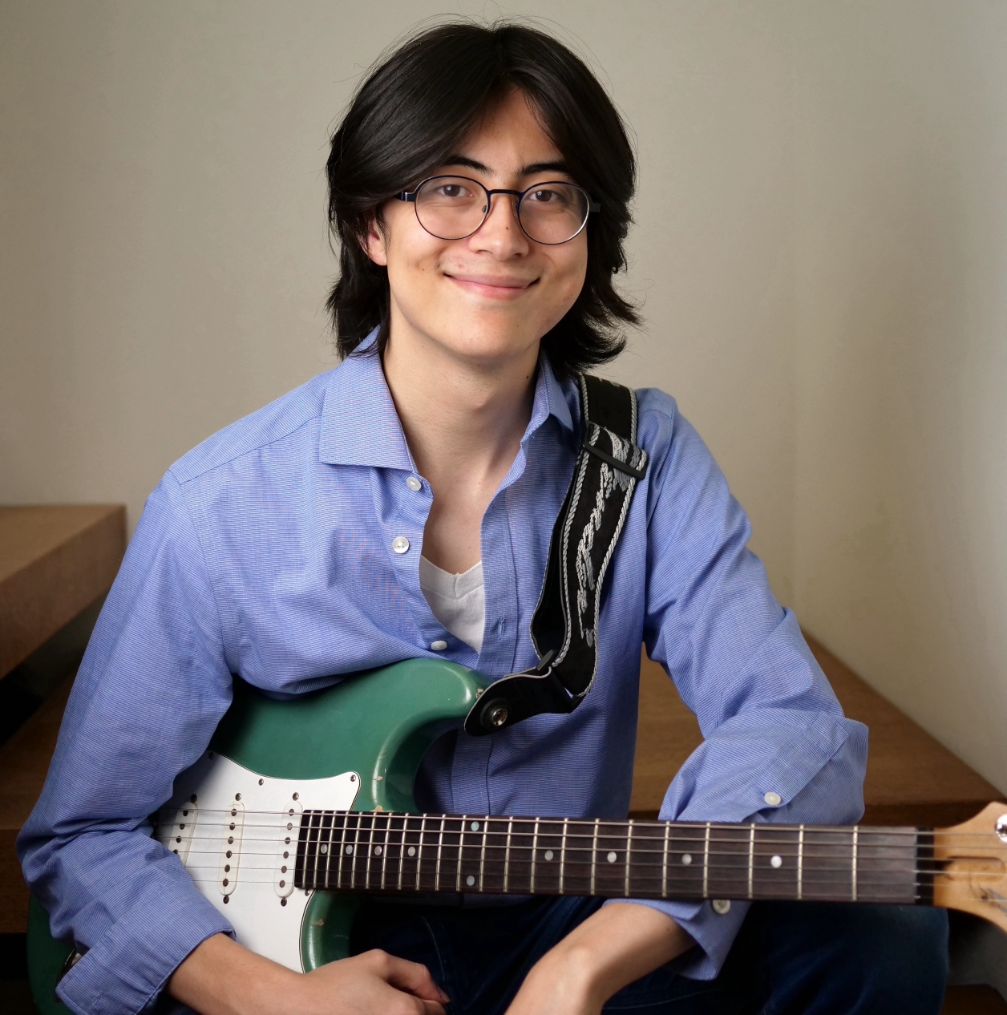Last Updated on February 26, 2024
The music industry, one of the most dynamic and intriguing fields today, is continually in flux to reflect the times and resonate with a global audience. The digital era has pushed its boundaries, changing how music is created, distributed, and consumed. Amidst this transformation, a constant that remains is the demand for unique, talented artists, and performers who breathe life into the music. Artists like Alex Mak, whose extraordinary talent and dedication to his craft shine brightly in today’s music scene.
Alex Mak is an accomplished guitarist and music arranger who has made significant strides in the industry. He plays for Titanique, a successful jukebox musical parody of the iconic 1997 film Titanic. The show, laced with the legendary music of Céline Dion, is staged at the Daryl Roth Theatre, a renowned off-Broadway performance space in Union Square, Manhattan. Known for hosting award-winning productions, this theater has become the perfect backdrop for Alex’s exceptional guitar prowess to flourish.
Titanique has been a massive hit, regularly selling out 90–100% of its 270 seats. Its success is widely acknowledged, receiving recognition from premier media outlets such as The New York Times, The Wall Street Journal, and People Magazine. Alex’s role in this musical production has undoubtedly contributed to its success, his soulful guitar infusing each performance with a unique edge.
One notable milestone in Alex’s career occurred on November 22, 2022, when he performed with Titanique as the musical guest on Late Night With Seth Meyers. Broadcasted globally, this popular American late-night talk show on NBC amplified Alex’s talent to an international audience, further establishing his growing reputation in the music industry.
Alex’s expertise isn’t confined to live performances. He has demonstrated his creative acumen by working as a music arranger for Yamaha Music Entertainment Holdings. Alex recorded all guitar tracks for the Japanese-language music instruction book, “Arranging for Contemporary Music.” Authored by Lee Abe and published by Yamaha, this comprehensive guide explores the diverse sounds and notation techniques used in contemporary music ensembles. The audio examples, featuring Alex’s guitar playing, have been published on Yamaha Music Publishing’s Japanese YouTube channel, which boasts 43.1K subscribers and an impressive 27.36 million total channel views.
We had the privilege of interviewing Alex Mak, exploring his journey as a performer. From his numerous concerts, including Signature Series concerts where he shone as a guitarist and a featured soloist, to his successful stint as a gigging and session musician, Alex’s career is marked by his extraordinary skills and love for performing. His role in Titanique offers a testament to his adept musicianship and the significant impact he makes on each performance.
It’s amazing to have you here, Alex. Can you share with us how you first got into performing and what inspired you to pursue it as a career?
I began learning guitar at a young age, with my dad as my first teacher. About a year later, I started taking music lessons at a local store. This store hosted recitals every summer and winter, and after my first recital, I was captivated! I continued performing around my hometown as I grew up, seizing every opportunity at recitals, school, and community events.
I’m captivated by the reciprocal relationship between performers and their audience as they share fleeting moments together. As I gained performance experience, I continued discovering new avenues for growth and new aspects to cherish about these experiences. Performing quickly became one of my favorite feelings. Once I realized that I had the chance to turn it into a career, I seized the opportunity!

You’ve performed in several concerts, including Signature Series concerts. Can you talk about your favorite performance and what made it special for you?
A memorable experience took place a few months ago when I performed with Titanique on a Sunday afternoon. As I was making my way to the stage, I noticed Keith Richards and his family settling into their seats!
Keith and the Stones have been one of my primary influences since my musical journey began. As I played through that show, I realized how much of my rhythm guitar playing borrowed moves I had first heard from Keith. When I soloed, I couldn’t resist inserting a few nods to his style. I was lucky enough to meet him after the show and express my gratitude for his inspiration. This encounter represented an incredible full-circle moment for me.
Can you share your process for preparing for a performance and how you overcome any stage fright or nerves?
It took a while, but I usually don’t experience stage fright before performing now. I tackled it from two fronts, preparation and mindset.
Regarding preparation, I make sure I’m confident in what I’m doing. This way, I don’t have to focus on the details during the performance. I aim to learn pieces at least a week before I have to perform them, ensuring that I’ve had enough time to familiarize myself with them and iron out any potential mistakes that might surface on stage.
As for my mindset, I try to approach performances with a sense of gratitude. No one attends a performance hoping for the performers to falter or have a bad time. The audience is rooting for you and wants you to enjoy the experience. The energy during a performance forms a beautiful feedback loop, and I strive not to let any insecurities interfere with that.
How has gigging helped you grow as a performer, and what have you learned from those experiences?
Recording sessions demand the capacity to innovate spontaneously while ensuring a consistent execution. You might have an excellent idea for a guitar part, but if you can’t execute it flawlessly, it won’t make it onto the record. In performances like Titanique, there are sections I’ve had to play identically over 200 times! My role in those instances isn’t merely to play the notes, but to infuse them with feeling and balance them within the bigger picture. Sessions have significantly honed my ability to deliver in moments like these.
You performed on Late Night with Seth Meyers and regularly play a spotlighted guitar solo in the musical at the Daryl Roth Theatre. How did the opportunity to play on Seth Meyers come about, and could you share what the experience of both these performances is like?
When Titanique moved to the larger Daryl Roth Theatre, we were booked on a show to promote this upgraded version – a significant leap in size from our original venue. The experience was fantastic! The show functioned like a well-oiled machine, with an excellent crew ensuring everything ran on a tight schedule.
We had a rehearsal in the morning, took a break for a few hours, then recorded, wrapping up by the afternoon! The whole experience flew by. Seth Meyers’ studio is just across from the famous 8H where SNL tapes. It felt surreal walking down a corridor adorned with a piano signed by legends like Paul McCartney and photos of the numerous SNL casts.

How do you balance staying true to the original music while also putting your own spin on it when performing cover songs?
I believe it’s crucial to approach a song by asking whether it truly needs more than what’s been recorded. There are countless iconic solos, rhythm parts, and fills already out there, and I don’t often think that they can be bettered! By thoroughly learning the original way something was performed, I can build upon it, knowing I have a solid foundation.
When I want to put my own spin on a song, melody takes precedence. I let it guide the other elements of my rendition, and if I can make the melody truly stand out, things usually fall into place.
What advice would you give to someone who is just starting in the music industry and wants to become a successful performer?
The more performing experience you accumulate, the better you become! It doesn’t matter what you’re playing, where it’s being played, who’s watching, or how well you’re playing it. The more you perform, the more comfortable you get. As your confidence grows, your performance will improve, and any mistakes you make on stage will serve as valuable lessons. Once you’ve gained enough confidence, you can achieve anything.
How has your experience in Titanique influenced your performance skills, and what have you learned from working in a musical production versus other types of performances?
Titanique has been my first major musical, and it’s been incredibly rewarding to be part of something larger than an individual! I’ve learned so much from observing how the actors carry themselves, react to the moment, and improvise. Depending on the scene, the music’s role shifts from background to foreground, and my playing has to adapt accordingly. This experience has made me more aware of my role and the broader elements of performances!
Each time I perform with the show, for the majority of the audience, it’s their first time seeing it, even if it’s our 400th show. We can’t afford to let that energy wane; things have to feel fresh and new. Once I embraced this concept, I gained so much more from the experience!

